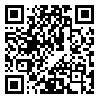Volume 22, Issue 3 (2018)
CLR 2018, 22(3): 27-56 |
Back to browse issues page
1- Associate Professor, Faculty of Administrative & Economics, Isfahan University, Isfahan, Iran , m.jalali@ase.ui.ac.ir
2- Assistant Professor, Public International Law, Law Faculty, Isfahan University, Isfahan, Iran
3- Phd Student in Public International Law,Islamic Azad University Isfahan, Isfahan, Iran
2- Assistant Professor, Public International Law, Law Faculty, Isfahan University, Isfahan, Iran
3- Phd Student in Public International Law,Islamic Azad University Isfahan, Isfahan, Iran
Abstract: (9337 Views)
Free trade is a concept that has been attempted to formulate international documents with a definite and binding definition. International commercial documents are agreements that seek to establish multilateral relations at the global and regional level. The best multilateral international trade document is currently the WTO. The provisions of this organization as well as the provisions of GATT 1947is very important to recognition of the headquarters of international trade. The environment and its protection, although not specifically covered by an agreement In the WTO system But considering it as an important exception in free trade Which is evaluated in most of the paragraphs "b and e" of Article 20 of the GATT. In addition, the trade agreements of the World Trade Organization Including the TRIPS, Gats, the Agricultural Agreement, the Technical Barriers to Trade Agreement, Agreement on Health Measures and Plant Health have specific regulations for protecting the environment and non-renewable resources. In regional trademarks such as the EU, The NAFTA and Mercosur Regulations also support the environment and sustainable development are the main goals of the custodians of those documents. This article describes the status of the environment in Both global and regional commercial documents and analyzes The strengths and weaknesses of these documents in the direction of respect for excellence acting on environmental regulations and standards in trade.
Article Type: Original Research |
Subject:
Law
Received: 2017/08/14 | Accepted: 2021/03/8 | Published: 2018/11/15
Received: 2017/08/14 | Accepted: 2021/03/8 | Published: 2018/11/15
| Rights and permissions | |
 |
This work is licensed under a Creative Commons Attribution-NonCommercial 4.0 International License. |


